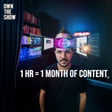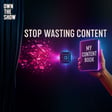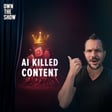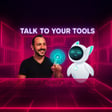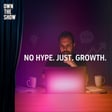
Become a Super Marketer in the Age of AI w/Gen Furukawa
In this episode of AI-Driven Marketer, Dan Sanchez interviews Gen Furukawa, Founder of SuperMarketers, about leveraging AI to become a super marketer. They dive into building an AI-enhanced marketing stack, covering essential AI tools, content repurposing, data analysis, and more. Gen shares his journey, insights, and practical tips to help marketers do more with less. Whether you’re looking to streamline your marketing efforts or learn how to implement AI effectively, this episode has valuable takeaways for you.
Timestamps
• 03:38 Gen discusses his background in SaaS marketing and the inception of SuperMarketers.
• 06:53 Leveraging AI tools for small marketing teams to compete with larger organizations.
• 10:46 The impact of AI on content production and repurposing.
• 18:14 Predictions on AI’s future in marketing and potential job automation.
• 24:29 Practical applications of AI in data analysis and insights for marketers.
• 34:12 Essential AI tools Gen uses regularly and their benefits for marketing efficiency.



![What’s Your Authority Score? [The 5-Factor Test] image](https://media.zencastr.com/cdn-cgi/image/width=112,quality=85/image-files/630c9f06819f8b3dba5fa460/cfbaccba-f587-45de-a41f-e2c99c15e2a5.png)
![The Audience Growth Engine [Full Framework] image](https://media.zencastr.com/cdn-cgi/image/width=112,quality=85/image-files/630c9f06819f8b3dba5fa460/46b84fd1-e856-4687-9aee-6b4a7e0bc7ff.png)



![The "Dream 100" Execution Plan [Google Sheet System] image](https://media.zencastr.com/cdn-cgi/image/width=112,quality=85/image-files/630c9f06819f8b3dba5fa460/fcd89374-76a4-4e58-a2e3-2bb7ddda4364.png)
